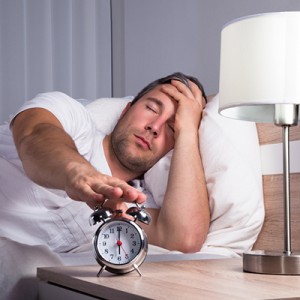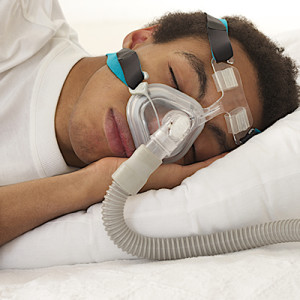Posted on Monday, September 26th, 2016 at 9:11 pm
What comes to mind when you think of sleep apnea? Is it loud snoring? Do you imagine a spouse or partner being so frustrated with their significant other because they are keeping them awake at night?
While the above scenario is quite common, there is much more to sleep apnea than meets the eye. The fact of the matter is that sleep apnea is a serious medical condition that, if left undiagnosed and untreated, can lead to serious health problems and even death.
What most people don’t realize is that there are two distinct types of sleep apnea that people suffer from. The most common disorder (and the one that is most treatable) is obstructive sleep apnea (OSA). The other type of sleep apnea that is more difficult to treat is known as central sleep apnea (CSA).

The most important thing we want to share with you is this:
If you think you may be suffering from any form of sleep apnea, it is important to get properly tested and diagnosed. At our West Babylon and Patchogue locations along the South Shore of Long Island, Dr. Brown and his team of sleep apnea professionals provide sleep apnea evaluations, diagnosis, and treatment options that do not include using a CPAP machine.
Now that we’ve got that out of the way, let’s move on.
Central Sleep Apnea:
According to this article, central sleep apnea is a dangerous condition that is often linked to heart and kidney failure. In addition, it is also believed to be linked to a variety of neurological issues due to the signals in the brain (that tell the body to breath regularly) that cease to function correctly.
In effect, there is no effort made to inhale or take a breath because the brain is not signaling the body to do so. Since central sleep apnea is more than just an issue of a blocked or obstructed airway (which is the cause of obstructive sleep apnea), typical sleep apnea treatments such as CPAP or oral appliance therapy may be limited in their ability to treat central sleep apnea.
Many individuals who suffer from central sleep apnea will also suffer from obstructive sleep apnea. In this case, oral appliance therapy may be an effective measure to treat sleep apnea.
Obstructive Sleep Apnea:
Unlike central sleep apnea which has a neurological basis as the primary cause, obstructive sleep apnea is caused when the airway becomes blocked and oxygen cannot reach the lungs properly.
This results in a struggle to breathe, which often leads to sleep apnea sufferers waking up in the middle of the night gasping for air.
As you can see, one of the key differences between central sleep apnea and obstructive sleep apnea is that, with OSA you are trying to take a breath, whereas with CSA the brain isn’t properly signaling the rest of the body.
The good news about obstructive sleep apnea is that it is a treatable condition, with the most common treatment being oral appliance therapy (which is what we offer).
Treating Obstructive Sleep Apnea

Fortunately, obstructive sleep apnea treatments have come a long way in the last few years, and now dentists like Dr. Brown are able to provide oral appliance therapy as a simple, straightforward, viable alternative to bulky, expensive, CPAP machines.
For a more in-depth look at treatment alternatives, you can read this article that we wrote:
www.sleepbetterny.com/cpap-vs-oral-appliance-which-is-the-best-sleep-apnea-treatment-for-you/
If you think you may have sleep apnea (either central or obstructive), it is important to visit a doctor who can properly screen and diagnose you.
If you feel that you may have obstructive sleep apnea and you live near the South Shore of Long Island, we encourage you to contact our office nearest you today to schedule your consultation with Dr. Brown!